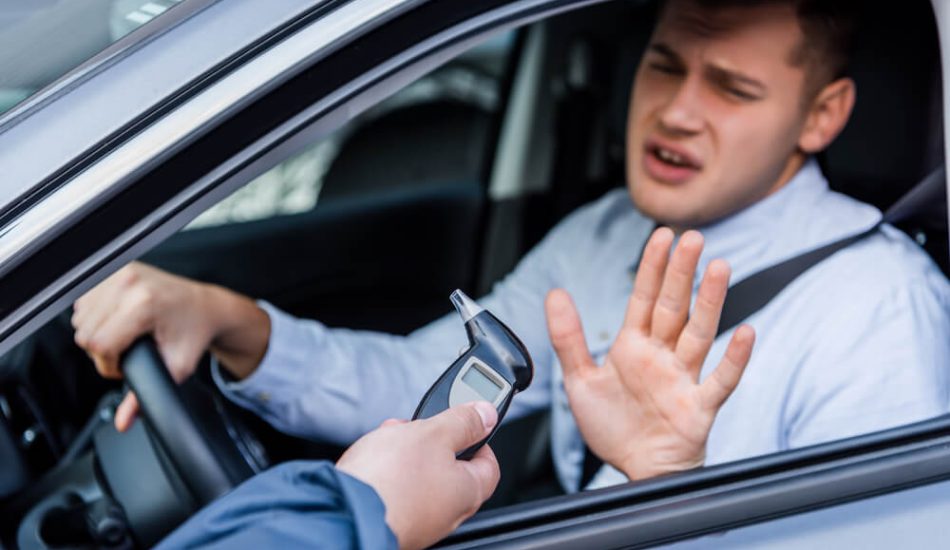Can You Refuse a Preliminary Breath Test (PBT) in Rhode Island?

You can refuse to submit to a PBT in Rhode Island but you need to be aware that does not mean that you are free of consequences. You could be charged with Refusal to Submit to a Preliminary Breath Test and could face fines, a potential license suspension and other penalties. Rhode Island General Laws § 31-27-2.3(b) states: “If a person refuses, upon a lawful request of a law enforcement officer, to submit to a test under subsection (a) of this section, that person shall be guilty of an infraction and shall be subject to the penalty provided in § 31-41.1-4.” Rhode Island General Laws § 31-41.1-4 (31-27-2.3) provides a schedule of violations which notes a Refusal to Submit to a Preliminary Breath Test yields a fine of $85. It can also result in a suspension of your driver’s license. You must be aware that if you refuse to do a PBT and the officer has enough evidence to suspect that you are under the influence, they may still arrest you for a DUI. You will go to the police station, and you will be asked to do a Breathalyzer test. If you also refuse to do a Breathalyzer test, it will yield different and harsher charges and penalties than refusing to do the PBT.
What is a PBT in Rhode Island?
A Preliminary Breath Test, also known as PBT, is a field test that a trained police officer may ask you to take if they suspect you are under the influence. The test is done through a machine that the officers carry and they will ask you to exhale air into a tube. After a moment, the machine will give a result of your current Blood Alcohol Content (BAC). These tests are usually done on the side of the road after you get pulled over.
In Rhode Island the legal limit of your BAC is 0.08. If you are over it, you are legally considered impaired to drive, though it’s important to be aware even if your BAC is under 0.08, you could still get a DUI charge.
Is a PBT the same as a Breathalyzer in Rhode Island?
It is important that you don’t confuse the PBT with a Breathalyzer test. Even though both are breath tests and share similar names, they are very different. Both tests are done to check your current BAC but they’re applied at different times. A PBT is done when the officer pulls you over whereas the breathalyzer test is done in the police station, after the officer charges you with a DUI.
Another difference is that the results of the Breathalyzer test are more reliable, therefore, it can be admissible in court, whereas the results of the PBT are not as reliable, and can not be used in court, but the results are good enough for the officers to use to determine whether to arrest you.
Are the PBT results used in court in Rhode Island?
Most of the time the PBT results aren’t admissible in court for a DUI prosecution. However, they are used to help determine whether there is probable cause to arrest a person who an officer believes is under the influence. The reason for the lack of admissibility is because the PBT machines aren’t reliable enough to give accurate results because certain factors, like the lack of calibration of the device, can make the results unreliable.
Still, you have to be aware of the consequences of refusing to submit to a PBT because, in court, the prosecution can try to use the results of the PBT to justify actions done by law enforcement. This is why it is always recommended that you hire a lawyer who is very knowledgeable in Rhode Island DUI and Refusal to Submit to Chemical Test laws.
What should I do if I refuse a PBT and I get a DUI charge in Rhode Island?
Facing a DUI charge in Rhode Island can have long-lasting legal consequences. At Ellison Law LLC, we believe it is crucial for you to know and understand both the legal implications of not following the law and how the legal system works in Rhode Island. Our experienced team of Rhode Island DUI attorneys is here to guide you through every step of the legal process, to provide support and help you navigate your case effectively.
If you are charged in Rhode Island with a DUI and Refusal consult with the skilled Rhode Island DUI attorneys at Ellison Law LLC, who will work alongside you to protect your rights and ensure the best possible outcome in your case. Contact us today at 401-230-5520.
Contact Us Today
Fields marked with an “*” are required

